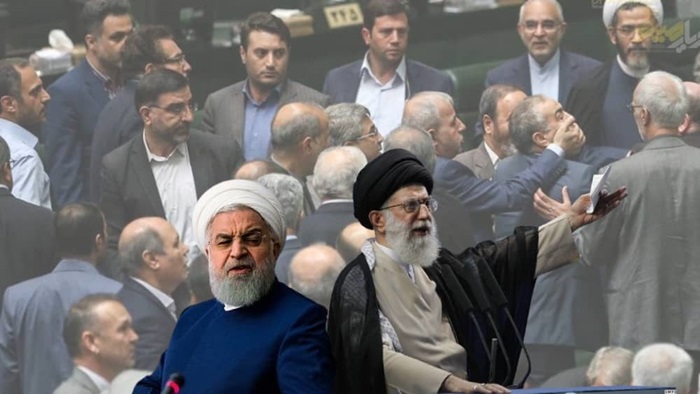
In a surprising move that underscores the shifting political dynamics within Iran, former President Hassan Rouhani has been disqualified from running in the upcoming elections for the sixth term of the Assembly of Experts.
The announcement came on January 24 via Rouhani’s official website, citing a statement from a Guardian Council official. This disqualification reflects Supreme Leader Ali Khamenei’s intensified efforts to consolidate control and prepare for both domestic and international challenges.
Hassan Rouhani, a prominent figure in Iran’s political landscape for over four decades, has held significant positions including five terms in parliament, 24 years in the Assembly of Experts, 16 years as the Secretary of the Supreme National Security Council, and two presidential terms. His exclusion, therefore, marks a critical point in Iranian politics, exceeding the significance of Ali Larijani’s exclusion in the previous election.
Despite Rouhani’s longstanding alignment with Khamenei and his advocacy for participation in the March elections, the Guardian Council, under Khamenei’s directive, rejected his candidacy. This move came as a shock to reformist factions and Rouhani supporters. The Council’s spokesperson sought to temper reactions by stating that official candidate names for the Assembly of Experts had not yet been finalized.
#Khamenei Set to Suffer Significant Defeat in Upcoming Sham Elections in #Iranhttps://t.co/ejEJqcSqcW
— NCRI-FAC (@iran_policy) January 11, 2024
Following his disqualification, Rouhani openly criticized the election process, suggesting that the majority of Iranians view elections as meaningless. His earlier comments, made on January 17, hinted at an awareness of his impending disqualification, criticizing the ruling minority’s desire for low voter turnout to ensure their survival.
In response, officials close to Khamenei, including Nasrollah Pejmanfar, head of the Parliament’s Article 90 Commission, threatened legal action against Rouhani, hinting at potential exposure of government misconduct. The newspaper Kayhan, aligned with the Supreme Leader, also criticized Rouhani, suggesting he should have been impeached for his failures.
Khamenei’s call for maximum voter turnout contrasts sharply with the systematic exclusion of figures like Rouhani, raising questions about the motives behind these actions. Khamenei, who has navigated multiple uprisings and faces a growing resistance movement, seems focused on consolidating his power base. This strategy is evident in his recent actions, ranging from regional military interventions to increased domestic repression.
Watch and judge how political purging in instructed by this #Iranian state official ahead of the so-called parliamentary #elections pic.twitter.com/LH9C2gkKrB
— NCRI-FAC (@iran_policy) January 14, 2024
Despite his disqualification, Rouhani urged Iranians not to boycott the elections. His stance indicates an understanding of the strategic considerations at play within the regime, which is increasingly wary of taking risks amid a climate of heightened tension and opposition. This latest development in Iranian politics reveals the complex interplay of power, strategy, and resistance shaping the future of the nation.

MEK Iran (follow us on Twitter and Facebook), Maryam Rajavi’s on her site, Twitter & Facebook, NCRI (Twitter & Facebook), and People’s Mojahedin Organization of Iran – MEK IRAN – YouTu
